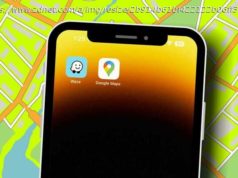We put the 2019 Apple AirPods to the test to see how they stack up against the original Apple earbuds.
The upgraded Apple AirPods were released in 2019, when the world was expecting Apple to bring out a totally new version of its true wireless earbuds that, supposedly, would be waterproof and noise-cancelling. Instead, Apple simply updated its original true wireless earbuds, this time with an H1 chip and wireless charging, and the AirPods (2019) were born. While this may have felt like a disappointment for some, the inclusion of a new H1 chip improves connectivity and battery life, and allows you to summon Siri with your voice alone – meanwhile, an optional wireless charging case means you can use a Qi-compatible charging mat to power the case, rather than sticking a cable into the Lightning charging port in the bottom of the case. So, do the second-generation AirPods improve upon their predecessors – and are they still worth buying now that the noise-cancelling AirPods Pro have come on the scene? [Update: While there were rumors of the Apple AirPods 3 crashing into the market before 2020 was out, they never materialized – and now everything is pointing to a 2021 release date. In fact, Apple’s first big event of the year could take place on March 23, as posited by prominent leaker DuanRui who stated as much in a tweet. Interestingly, this coincides with the OnePlus 9 reveal that’s also scheduled for March 23.] The 2019 AirPods have been given a firmware upgrade that should make it easier for you to switch between different devices while listening. The firmware update is available via iOS 14, and gives you a new auto-switching feature means that the AirPods can now “magically switch over between devices”, detecting automatically which device you are using. For example, if you’ve just finished listening to a podcast on your phone, you can pick up your iPad to watch a TV shows and the wireless earbuds will connect to the tablet automatically. It’s a nifty feature, and yet another way AirPods are tailor-made for the Apple ecosystem. The noise-cancelling AirPods Pro also got an upgrade with iOS 14, which allows for Dolby Atmos spatial audio. The new feature works in 5.1,7.1, and Dolby Atmos, which positions sound all around you within a virtual sphere – that means that if you’re watching a Dolby Atmos film that shows a plane flying overheard, it will sound as though the plane is really passing above you. As well as allowing for clever virtual Dolby Atmos, the AirPods Pro can track the motion of your head and your device, to ensure that the audio always appear to originate from the correct position. The second generation of the Apple AirPods cost $159 / £159 / AU$249 with the standard charging case, and $199 / £199 / AU$319 with the new Wireless Charging Case bundled in. The AirPods with the standard case are the same price as their predecessors, but you’ll need to shell out an extra $40 / £40 / AU$70 to get the benefits of wireless charging. You can also purchase the charging case separately for $79 / £79 / AU$129, which is good news if you have the original AirPods but want to upgrade your case to one that supports wireless charging, although you might feel it’s a high price to pay for some added convenience. Significant Apple AirPod deals are rare, but not impossible to find – the cheapest you’re likely to find the standard charging case model is around $125 / £130. Looking for something cheaper? You can get the Optoma NuForce BE Free5, which are among our favorite true wireless headphones, for $100 (about £75 / AU$130). If you can afford to splash your cash, it’s well worth checking out the Sony WF-1000XM3 Wireless Earbuds; they cost £220 / $230 / AU$400, but they’ve topped our list of the best true wireless earphones.






